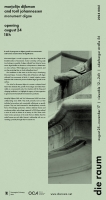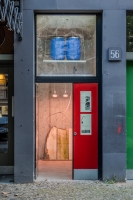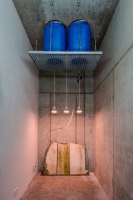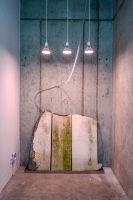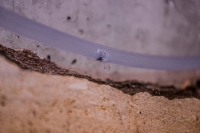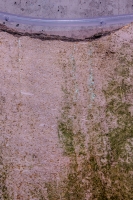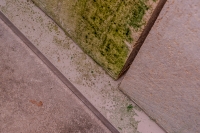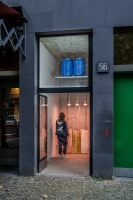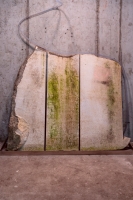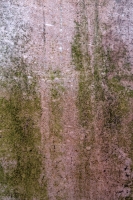2024 061 marjolijn dijkman and toril johannessen: monument algae
august 25 — november 17, 2024
viewable 12 — 24 h
opening on saturday, august 24, 18 h
A work in progress on algae growth on monuments
and human constructions of significance.
Monument Algae is a work in progress on the role of algae in the biodeterioration of monuments. It aims to develop a living sculpture hosting an assembly of algae collected from historical monuments. Algae biofilm can function as a bioprotector or deteriorator on stone surfaces. Which algae grow on what monuments, and are they protecting them or slowly taking them down?
The installation at die raum is the first step in developing Monument Algae. It consists of three slabs of limestone with algae collected from monuments in Berlin. A simple irrigation system keeps the slabs continuously moist to facilitate algae growth on the surface.
Our vision for Monument Algae is to create a sculptural installation that stimulates the growth of microalgae and makes them visible on a monumental scale. Our intention with this living and changing installation is to highlight the agency of microorganisms in general and in human-built environments in particular.
Marjolijn Dijkman (NL) and Toril Johannessen (NO) have been collaborating since 2008. They both primarily work on their individual art practices and occasionally collaborate on specific projects. They are both interested in interdisciplinary research, forms of knowledge production, relations between human and non-human entities, and ecology in general. In 2018, they realized a series of works in relation to an estuary in Oslo. These works reveal various processes in the water that are hidden from the naked human eye and reflect humans’ relationship with our surroundings, primarily through what we cannot see.

